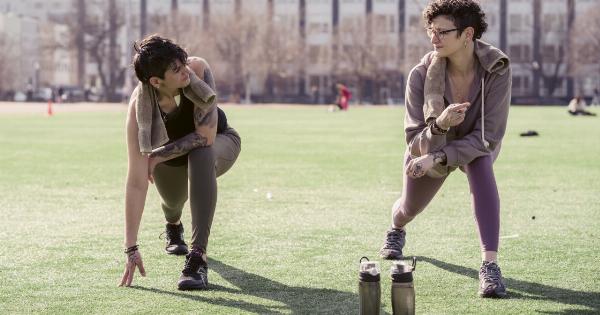Showering is a daily hygiene practice that most people adhere to. While the timing of showering may seem like a simple decision, it can actually have an impact on our overall health and well-being.
In this article, we will explore the best times to take a shower and how it can benefit different aspects of our lives.
1. Morning showers
For many individuals, taking a shower in the morning has become an essential part of their daily routine. It helps them wake up and feel refreshed before starting their day.
Morning showers can also help to wash away any sweat or oil that may have accumulated on the body during sleep, leaving one feeling clean and invigorated.
Additionally, a morning shower can be a great way to stimulate the mind and enhance mental clarity. The sensation of warm water flowing over the body can provide a sensory awakening and prepare you for the tasks ahead.
2. Nighttime showers
On the other hand, some people prefer to take showers at night. Nighttime showers have their own set of benefits. Firstly, they can help you relax and unwind after a long day, washing away all the stress and tension.
The warm water promotes a sense of tranquility and can even aid in a good night’s sleep.
Moreover, nighttime showers can be beneficial for those who struggle with allergies or have been exposed to pollutants throughout the day.
It helps remove any allergens or irritants that may have stuck to the skin or hair, ensuring a clean and peaceful rest.
3. Post-exercise showers
If you engage in physical activities or exercise regularly, taking a shower after your session is highly recommended. During exercise, our bodies produce sweat, which can lead to the accumulation of bacteria and the potential for body odor.
Showering post-workout helps to cleanse the skin, preventing any unpleasant odors and promoting good hygiene.
Moreover, a post-exercise shower can aid in muscle recovery. The warm water helps to relax and soothe the muscles, reducing any soreness or stiffness caused by intense physical activity.
Adding a cold-water component to the shower can further enhance muscle recovery by reducing inflammation and promoting circulation.
4. Allergen removal
If you suffer from allergies or have been exposed to allergens throughout the day, taking a shower before bedtime can help alleviate symptoms.
Showers serve as a means of removing any allergens that may have clung to your body, hair, or clothes during the day.
Pollen, dust, and other airborne allergens can stick to your skin and clothes, leading to prolonged exposure and potential discomfort.
By showering before getting into bed, you can reduce the transfer of these allergens onto your sheets and pillowcases, creating a more allergy-friendly environment for sleeping.
5. Dry skin or scalp
If you have dry skin or scalp, it is advisable to avoid hot showers as they can further strip moisture from your skin, making the condition worse. Instead, opt for lukewarm showers and use moisturizing products specially designed for dry skin.
Similarly, if you struggle with dandruff or an itchy scalp, consider washing your hair more frequently.
Regularly cleansing the scalp can help remove dirt, dead skin cells, and excess oil, reducing the likelihood of dandruff and alleviating any itching or irritation.
6. Special considerations for certain hair types
Considering different hair types is essential when determining the best time to take a shower. For individuals with oily or fine hair, it may be beneficial to shower in the morning.
This allows them to start their day with fresh and voluminous hair, as sebum production is often higher during the night.
On the contrary, those with thick or curly hair may find it better to shower at night. This gives them time to allow their hair to dry naturally, and also makes it easier to style in the morning without rushing.
7. Hot vs. cold showers
The temperature of your shower can also impact your overall well-being. Both hot and cold showers have their own set of advantages and should be chosen depending on personal preferences and specific needs.
Hot showers, for instance, can help relax the muscles, alleviate tension, and provide a sense of comfort. They are also beneficial for opening up pores, allowing for a more effective cleanse and possibly reducing acne breakouts.
However, it is important to note that hot showers can strip the skin of its natural oils and may not be suitable for individuals with certain skin conditions, such as eczema.
Cold showers, on the other hand, can invigorate the body and provide a refreshing start to the day. They have been associated with increased alertness, improved circulation, and even potential weight loss benefits.
Cold showers are especially helpful for individuals who have been struggling with low energy levels or need a natural pick-me-up.
8. Seasonal considerations
The time at which you should take a shower can also be influenced by the specific season or climate you are in. During the hot summer months, it may be more comfortable to take showers in the evening to cool down before bed.
In colder climates, a morning shower might be more preferable, helping you start the day with a warming sensation.
It is important to note that while long, hot showers can be tempting during cold winters, they can actually worsen dry skin conditions.
To combat this, opt for shorter showers with lukewarm water and be sure to moisturize your skin thoroughly afterward.
9. Balancing shower frequency
While it is essential to maintain good hygiene, excessively showering can actually have negative effects on your skin and hair.
Frequent showers can strip away the natural oils that keep your skin moisturized and protect your hair, leading to dryness, itching, and even potential damage.
The ideal frequency of showering varies from person to person and depends on individual factors such as lifestyle, activity level, and personal preference.
Most experts recommend showering every other day or every two days, unless you have specific needs that require more frequent showering.
10. Conclusion
In conclusion, the timing of your showers can have multiple benefits for your physical and mental well-being.
Whether you choose to take a shower in the morning or at night, it is important to consider personal preferences, activities, hair and skin types, and climate. Remember to strike a balance between staying clean and maintaining the natural oils and moisture that are essential for healthy skin and hair.




























